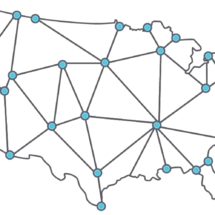Being a newly licensed insurance agent can be a little daunting. There are many terms and acronyms thrown around in the industry. One way to speed up your career is to understand key industry terms and how they may impact your role as an agent. We created this glossary of insurance terms to help new agents familiarize themselves with the most commonly used terms.
Agent or Producer: An insurance agent or producer sells and represents insurance policies to individuals or businesses. They are licensed by the state where they operate and are responsible for helping clients determine their insurance needs, providing information about different policies, and helping clients choose the best policy.
Customer Service Representative / Customer Insurance Representative (CIR): An insurance customer support representative works for an insurance company or agency and provides customer assistance and support. Insurance customer support representatives may handle various tasks, including answering customer inquiries, resolving issues and complaints, processing policy changes, and providing information about insurance products and services. CIR, or Customer Insurance Representative, is the professional licensing designation offered by All-Lines Training to help individuals become customer service representatives.
Underwriting Assistant: Insurance underwriting assistants typically work for insurance companies and provide administrative support to underwriters by collecting and organizing information, conducting research, and performing other tasks as needed.
Marketing Representative: An insurance marketing representative, also known as an insurance marketing specialist, is responsible for promoting and selling insurance products to potential clients. Insurance marketing representatives work for insurance companies, agencies, or as independent contractors, and their main goal is generating leads and closing sales.
Insurance Agency: An insurance agency is a business that represents one or more insurance companies and sells insurance policies to individuals, businesses, and other organizations. Insurance agencies may sell various types of insurance, such as life, health, auto, home, and business insurance.
Insurance Broker: An insurance broker is a professional who acts as an intermediary between insurance buyers and insurance companies. Insurance brokers are licensed by the state where they operate and are responsible for helping clients determine their insurance needs, explaining the coverage options available to them, and selling them policies that meet their needs. They can offer insurance solutions from different insurance companies as options.
Managing General Agency (MGA): An insurance MGA, or managing general agent, acts as an intermediary between insurance carriers and insurance brokers or agents. Insurance MGAs are typically independent contractors responsible for underwriting and issuing insurance policies on behalf of the insurance carrier. They may also be responsible for marketing and selling insurance products and providing support and guidance to brokers and agents.
Insurance Carrier: An insurance carrier, also known as an insurer, is a company that provides insurance coverage to individuals, businesses, and other organizations. Insurance carriers offer a variety of insurance products, such as life, health, auto, home, and business insurance. They are responsible for evaluating the risk associated with insuring a person or property, determining the premiums to be charged, and issuing insurance policies to those who qualify.
Insured or Policyholder: An insured is a person who has purchased an insurance policy, a contract in which an insurer agrees to provide financial protection to the insured in exchange for a premium payment. An insurance policy typically covers the insured for a specific type of event or risk, such as the loss of property due to theft or damage, the loss of income due to disability or illness, or the cost of medical treatment in the event of an accident or injury. The insurer assumes the risk of loss or damage to the insured’s property or person, and agrees to provide financial compensation to the insured if a covered event occurs. The insured is responsible for paying the premium on the policy, and in return, the insurer agrees to provide the agreed-upon coverage.
Policy: An insurance policy is a legal contract between an insurance company and a policyholder in which the insurance company agrees to provide certain coverage and benefits in exchange for the payment of premiums. Insurance policies typically outline the terms and conditions of the insurance coverage, including the types of losses or events that are covered, the amount of coverage provided, and any exclusions or limitations on the coverage.
Excess and Surplus Lines: Excess and surplus lines insurance, also known as E&S insurance or non-admitted insurance, is a type of insurance coverage provided by insurance companies that are not licensed to sell insurance in a particular state. Excess and surplus lines insurance is often used to cover risks that are not adequately insured by traditional insurance carriers or that do not meet the underwriting guidelines of those carriers.
Examples of when one might get an E&S policy: new business ventures, roofing contractors, homeowners with prior losses, weddings and special events, and even snowplowing operations.
Commercial Lines: Commercial lines of insurance is insurance coverage specifically designed to protect businesses and other commercial entities against financial losses. Commercial lines of insurance include a wide range of insurance products, such as property insurance, liability insurance, and business interruption insurance.
Personal Lines: Personal lines of insurance is insurance coverage specifically designed to protect individuals and their families against financial losses. Personal lines of insurance include a wide range of insurance products, such as life insurance, health insurance, auto insurance, and homeowners insurance.
Personal Auto: Personal auto insurance is insurance coverage that protects individuals against financial losses resulting from car accidents and other vehicle-related incidents. Personal auto insurance policies typically provide coverage for damages to the policyholder’s vehicle and for injuries sustained by the policyholder and passengers.
Commercial Auto: Commercial auto coverage protects businesses and organizations against financial losses from car accidents and other vehicle-related incidents involving vehicles used for business purposes. Commercial auto coverage is typically required for businesses that own or operate vehicles, such as delivery trucks, vans, or cars used for sales or service calls.
National Flood Insurance Program (NFIP): The National Flood Insurance Program (NFIP) is a federal program administered by the Federal Emergency Management Agency (FEMA) that provides insurance coverage for losses resulting from flooding. The NFIP was established in 1968 to help reduce the impact of flooding on communities and provide an affordable insurance option for individuals and businesses in flood-prone areas.
Premium: An insurance premium is an amount a policyholder pays an insurance company in exchange for insurance coverage. Insurance premiums are typically paid periodically, such as monthly or annually. They are used to fund the insurance company’s operations and pay out claims in the event of a covered loss.
Claims: Insurance claims are requests made by policyholders to their insurance companies to pay for losses or damages covered under the terms of their insurance policy. These claims can be made for various reasons, such as car accidents, natural disasters, illnesses, and injuries.
Adjuster: An insurance adjuster is a professional who investigates and evaluates insurance claims. Once a policyholder files an insurance claim, the insurance adjuster will review and assess the damages or losses claimed and help determine what the insurance policy covers. They may work for an insurance company or be independent contractors.
Property & Casualty: Property and casualty insurance, also known as P&C insurance, is a type of insurance that protects against financial losses resulting from damage to or loss of physical assets, such as buildings, homes, and vehicles, as well as from liability claims arising from injuries or damages caused by the policyholder or their property.
Professional Designation: An insurance designation is a professional certification or title awarded to individuals who have completed a specific course of study or training in the insurance industry. Professional organizations or educational institutions typically offer insurance designations, which may be required or preferred by employers or regulatory bodies in the insurance industry. All-Lines Training’s Certified Insurance Representative (CIR) and our sister company AdjusterPro’s Certified Adjuster (CA) designations are two examples.
Appointment: An insurance appointment is a formal arrangement between an insurance company and an insurance agent or broker. The appointment gives the agent or broker the authority to sell and service insurance policies on behalf of the insurance company. Insurance appointments can be either exclusive or non-exclusive. An exclusive appointment means the agent or broker is only authorized to sell and service insurance policies from that insurance company. A non-exclusive appointment means the agent or broker is authorized to sell and service insurance policies from multiple insurance companies.
Line of Business (LOB): An insurance line of business (LOB) refers to a specific type of insurance offered by an insurance company. Insurance companies may offer several different LOBs, such as life insurance, health insurance, auto insurance, and homeowners insurance. Each LOB has its own set of products, coverage options, and underwriting guidelines and is designed to meet the specific insurance needs of a particular group of customers.
Exposures: Insurance exposures refer to the potential risks or hazards that an insurance policy covers. These exposures can include various events or circumstances, such as accidents, illnesses, natural disasters, fires, theft, and other losses or damages. When an individual or business purchases an insurance policy, they transfer some of their financial risk to the insurance company.
Agency Management System (AMS): An insurance agency management system is a software platform that insurance agencies use to manage their business operations. It is designed to help insurance agencies streamline and automate their processes, including sales, marketing, customer service, and policy administration.
Loss Ratio: The insurance loss ratio measures an insurance company’s profitability. It is calculated by dividing the total amount of money the insurance company pays out in claims by the total premium it collects. The resulting ratio is expressed as a percentage.
Submissions: Insurance submissions refer to the process of presenting a request for insurance coverage to an insurance company or broker. Insurance submissions typically involve providing information about the person or property being insured, the type and amount of coverage being sought, and any other relevant details that may impact the risk assessment and underwriting process.
We hope you find these terms helpful as you study for your insurance license, or begin your insurance career. If you’re interested in learning more about the insurance industry, we recommend you check out more posts on our All-Lines Training blog, and subscribe to the blog to get notified when we post a new article.






